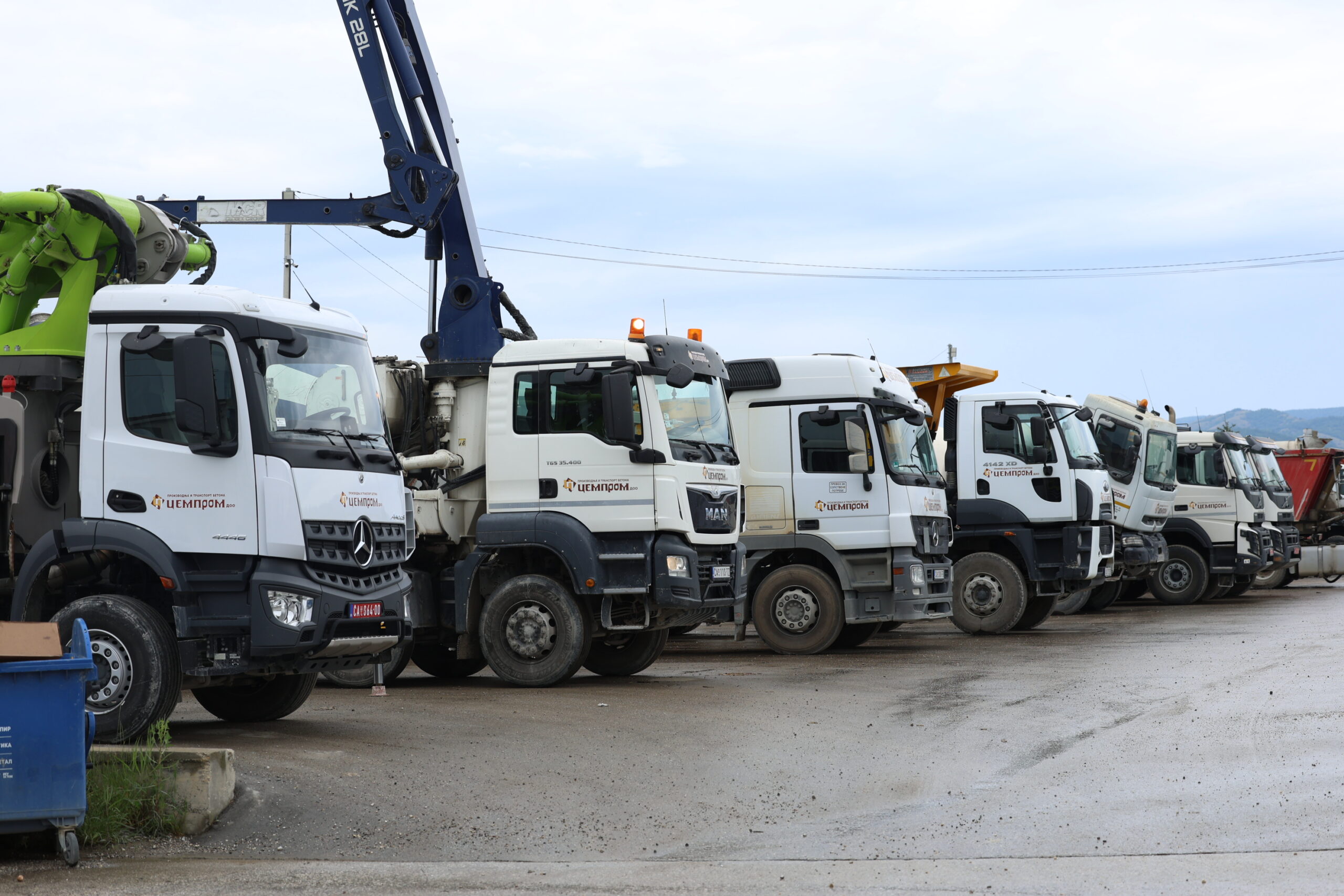
In Preljina, CEMPROM, a major player in concrete production, has demonstrated that sustainability and business success can go hand in hand. Benefiting from the Ecoloans programme—financed by the German Development Bank (KfW) and supported by the EU’s Regional Energy Efficiency Programme (REEP)—the company has made substantial strides towards greener operations.
Founded in 1992, CEMPROM has grown from producing concrete blocks and bagging cement to becoming a leader in concrete production, with projects including Corridor E 763 and local construction partnerships. Today, with a fleet of over 100 trucks and employing 150 people, the company can produce approximately 300,000 tons of concrete annually.
Through a €820,000 investment facilitated by UniCredit Bank, CEMPROM upgraded its fleet to methane-powered vehicles. This has cut fuel consumption by 42%, reduced nitrogen oxide emissions by 32%, and cut carbon dioxide emissions by 56%, with additional significant cuts in unburned hydrocarbons and particulates. Financially, these changes bring savings of around 20% annually, with the investment expected to repay itself within four to five years. Dejan Isailović, CEMPROM’s Director of Production, highlights these initiatives as both economically and environmentally strategic, contributing to the company’s sustainable growth and job creation.

Our unwavering commitment to environmentally driven business has always been a priority. This journey has opened up new horizons for us, making it possible to deliver larger quantities for crucial projects and expand into new services like cement transport.
Dejan Isailović, CEMPROM Director of Production
CEMPROM’s commitment to sustainability goes beyond its fleet. It integrates wastewater into production and repurposes leftover materials for local use, reflecting its dedication to community support and resource efficiency. This proactive approach inspires peers, as CEMPROM sets a high benchmark for energy efficiency and environmental responsibility.
The Ecoloans programme, integral to Serbia’s path toward a greener economy, addresses two primary challenges for SMEs: limited long-term financing and the need for sustainable business awareness. With €120 million channelled into Serbian banks, the programme aids businesses in cutting energy costs and reducing emissions. It is part of the REEP under the Western Balkans Investment Framework, showcasing strong EU and German support.
Despite the initial high costs of adopting green practices, Isailović urges SMEs to embrace sustainability, emphasising the short payback period and broad benefits.

“There is a pressing need for more awareness regarding sustainable and green business practices,” he notes. “The best way to dispel doubts is through open dialogue and learning from companies that have already embarked on this journey and achieved savings and improved production.”
The Ecoloans program, financed by the German Development Bank and supported by EU has provided €120 million into Serbian commercial banks. The program is a key component of the Regional Energy Efficiency Program (REEP).

CEMPROM’s commitment to sustainability goes beyond its fleet. It integrates wastewater into production and repurposes leftover materials for local use, reflecting its dedication to community support and resource efficiency. This proactive approach inspires peers, as CEMPROM sets a high benchmark for energy efficiency and environmental responsibility.
The Ecoloans programme, integral to Serbia’s path toward a greener economy, addresses two primary challenges for SMEs: limited long-term financing and the need for sustainable business awareness. With €120 million channelled into Serbian banks, the programme aids businesses in cutting energy costs and reducing emissions. It is part of the REEP under the Western Balkans Investment Framework, showcasing strong EU and German support.
Despite the initial high costs of adopting green practices, Isailović urges SMEs to embrace sustainability, emphasising the short payback period and broad benefits.

“There is a pressing need for more awareness regarding sustainable and green business practices,” he notes. “The best way to dispel doubts is through open dialogue and learning from companies that have already embarked on this journey and achieved savings and improved production.”
The Ecoloans program, financed by the German Development Bank and supported by EU has provided €120 million into Serbian commercial banks. The program is a key component of the Regional Energy Efficiency Program (REEP).
Please wait while your video is being uploaded...
Don't close this window!